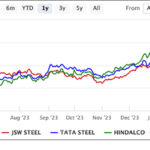
Every business cannot depend solely on product and services sales alone. This is why in principle, every business tries to go public.
Think of any of the largest companies in the world and you’ll find one clear recurring narrative. Samsung, Mercedes, Tesla, and McDonald’s all have stocks open to private and public investors. In order to grow consistently and broadly, you need to have other means of revenue than just usual business. The financial strategies that you should begin to divulge in are things like investing in competitors, buying up their stocks.
 Buy government and bank bonds in particular areas that are known to provide good long-term payouts. You should also try direct financial strategies, such as searching for investors as well as buying and selling material in the industry you work in. These are just some of the behind-the-scenes financial strategies you have.
Buy government and bank bonds in particular areas that are known to provide good long-term payouts. You should also try direct financial strategies, such as searching for investors as well as buying and selling material in the industry you work in. These are just some of the behind-the-scenes financial strategies you have.
Using the material trends
Businesses that have been operating in their industries for a few years will have understood how patterns and trends emerge in them. As an entrepreneur looking to create an extra line of financial revenue, you could begin to buy and sell materials for those in your industry. This is a viable strategy for a number of reasons.
Investor time-schedule and meetings
By now you should be pretty used to the financial report schedule. You will be making small reports for your quarterly earnings performance as well as annual reports once everything has been done for the year’s commerce. If you’re in the need for more investment, why not make a schedule for investors as well? This can be done virtually in the same sort of time frame as quarterly earnings reports. Make it clearly known to the world that you will be contacting investors and remaining open to inquiring investors during a set time period. The publishing dates of the quarterly earnings reports are generally on any day of the following month. The first quarter ends on March 31, so you would need to finish the earnings report for Q1 in April.
During this time, you should be open to investors contacting you and having a number of strategies to implement in order to nail down any investment. Making contact with potential investors won’t be too difficult as many will contact you via email or phone, while others will be using scouting firms who will make contact with you on their behalf.
Understanding your rivals has advantages
Whether you know it or not, you and your rivals have a lot more in common than you think. It’s very easy to share certain needs with rivals. If you’re creating similar products, you’re probably only going to have variances in design, size, and features. However, it’s more than likely that you will be sharing similar if not the same practices. In some sense, you can predict the quality of their product and thus, estimate their success during the coming weeks and months after they have released their product. The closer you follow your rivals, the better you will understand them, and their financial strategies. Before release day, after you have done a risk analysis on your rival, you should plan to cash in on their success. Buying their stock before the markets open and then selling the stocks at the peak, could net you a handsome profit.
This guide explains how to pick a day trading site and what fees you can expect to receive from each. Picking the right broker is a challenge but if you have the platform from which you can have a wide array to choose from, you can contact brokers directly. The platforms will also have their own support features for day traders such as mobile trading, deals, and incentives, a diverse range in asset types as well as customer service. Buying and selling your rival’s stock is definitely something you should start doing as a means to fund your own ventures.
Scalable contracts
During this lockdown period, business owners are arriving at the conclusion that business will be slow for a while. Even after the lockdown measures are lifted, there will be considerable turmoil in the markets. Those who want to secure B2B contracts need to start making scalable contracts. This will allow them to secure deals quickly as the preliminary period will give you the chance to work at a lower scale with multiple companies. If a partner likes working with you and concludes that it would be profitable to continue the relationship, the contract can activate the scalable clauses of the contract.
This is done when the obligations have been met. If you agreed to supply your partner with a certain amount of products and you succeeded in doing so, both parties will have the chance to activate the scaling clause and increase that number. As you can imagine, these contracts are not as stringent as normal B2B relationship contracts. However, they do offer lots of flexibility and take away some of the financial and legal burdens that you would normally be bound by.
Buying corporate and government bonds
Contrary to popular belief, it isn’t just other nations that buy government bonds. Anyone can buy a treasury and it’s usually one of the best long-term financial assets there is. However, you should first seek to work with the government, regarding regulations and investment of infrastructure that would help your business. Sitting down with a local MP or meeting with business ministers in the Trade Department of government is highly advisable. Not only will you be able to express your concerns in the industry you work in, but you could help to give a better understanding to the politicians that are making the policies. Government bonds are backed also by the central bank, which has a lot of economic flexibility to keep your treasury notes meeting the maturity goal they were originally intended for when sold.
Corporate bonds work in the same fashion. You are buying bonds that have a long-term life and a yield that will gradually increase year-on-year. As you would expect, corporate bonds are best only bought from companies that have shown consistent growth and success. Apple, HSBC, SpaceX, and companies like BlackRock are among the top examples. You may even want to buy corporate bonds from your rivals. If you beat them or sales or don’t either way, you are still going to be making an income.
Invest in other entrepreneurs
As an entrepreneur yourself, you have been around young, smart, and hopeful business owners. You may be a good judge of people. Since you own a business already, you will also know what the signs of trouble start to occur. But you will also have a keen eye for success stories waiting in the shadows. Why not take the opportunity to invest in other entrepreneurs who you think are showing signs of great things to come? There is a risk, just like any financial strategies, but the reward could be many hundreds of per cent greater than your investment.
No business wants to live on just it’s profit from sales. You need to diversify your financial strategies and seek to buy corporate and government bonds. You should also spot trends in the material supply chain and buy when prices go low so you can, later on, sell them when the R&D period begins.














